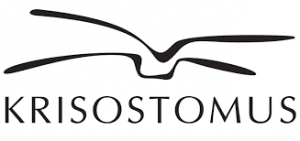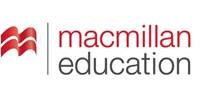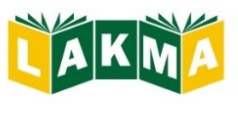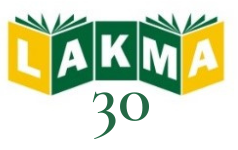


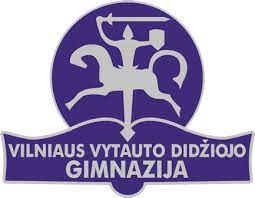
JUBILIEJINĖ LAKMA ASAMBLĖJA IR KONFERENCIJA
Minėdami asociacijos 30-etį, maloniai kviečiame LAKMA narius, partnerius ir draugus į šventinę asamblėją-konferenciją prisiminti anglistų bendruomenės entuziastingo kūrimosi, nuolatinio augimo ir džiuginančių pasiekimų kelią, aptarti šiandienos kalbų mokymo(si) aktualijas ir pasidžiaugti kolegišku bendravimu.
DATA / DATE: 2022 m. spalio 22 d.
VIETA / VENUE: Vytauto Didžiojo gimnazija, Augustijonų g. 8, Vilnius
MOKESTIS / FEE:
30 EUR LAKMA 2022 metų nariams / 30 EUR for LAKMA 2022 members
60 EUR ne nariams / 60 EUR for non-members
nuolatinių studijų studentams LAKMA 2022 metų nariams mokesčio nėra / no fee for full-time student LAKMA 2022 members
5 EUR nuolatinių studijų studentams ne nariams / 5 EUR for full-time student non-members
Išankstinio mokėjimo sąskaitos atsiunčiamos pagal pageidavimą.
LAKMA sąskaita SEB banke: LT977044060004578304
Dalyviams bus išduodami Kauno švietimo inovacijų centro akredituotos programos pažymėjimai (programos akreditacijos Nr. 213003277)
Į dalyvio mokestį įeina: pranešimai, akredituotos programos pažymėjimas, kavos / pietų pertraukos, vakaronė, grupės „Kitava” koncertas, šventinės staigmenos.
REGISTRACIJA / REGISTRATION iki 2022 m. spalio 18 d. / by October 18, 2022
PROGRAMA / PROGRAMME (bus pildoma / continuously updating)
| 09:00 – 10:00 | Registracija / Registration |
| 10:00 – 10:10 | Renginio atidarymas/ Opening (Aktų salė / Assembly Hall, II aukštas/ 2nd floor) Kristina URBONIENĖ, LAKMA prezidentė Rytis KOMIČIUS, Vytauto Didžiojo gimnazijos direktorius |
| 10.10 – 10.45 | Nacionalinė asamblėja 2022 / National Assembly 2022 LAKMA prezidentės 2021-2022 m. asociacijos veiklos ataskaita |
| 10.45 – 11.15 | Sveikinimo žodis / Words of Welcome Irena RAUDIENĖ, Lietuvos Švietimo, mokslo ir sporto ministerija Asta RANONYTĖ, Nacionalinė švietimo agentūra Lucy MAIZELS, Jungtinės Karalystės ambasada Vilniuje Philip DREWRY, JAV ambasada Vilniuje Robin GINGERICH, LCC tarptautinis universitetas |
| 11.15 – 11.45 | Kava ir užkandžiai / Coffee break |
| 11.45 – 12.45 | Plenariniai pranešimai I / Plenary talks I. Moderatorė Eglė PETRONIENĖ Ona Marija VYŠNIAUSKAITĖ, Britų taryba Lietuvoje Jennifer UHLER, Anglų kalbos specialistė Lietuvai, Latvijai, Estijai, Lenkijai, Grenlandijai, Rusijai ir Baltarusijai (JAV) |
| 12.45 – 13.00 | Pertraukėlė / Comfort break |
| 13.00 – 14.30 | Plenariniai pranešimai II / Plenary talks II. Moderatorė Robin GINGERICH Fiona MAUCHLINE, Macmillan leidykla Flo FEAST, National Geographic Learning leidykla Anna KOLBUSZEWSKA, Pearson Education leidykla |
| 14.30 – 15.00 | Pietų pertrauka / Lunch break |
| 15.00 – 15.45 | Paralelinės sesijos 1 / Parallel sessions 1 Fiona MAUCHLINE, Macmillan leidykla Room (200). Moderatorius: Ignas ŽILINSKAS Flo FEAST, National Geographic Learning leidykla Room (203). Moderatorė: Vilda KIAUNYTĖ Anna KOLBUSZEWSKA, Pearson Education leidykla Room (204). Moderatorė: Elmyra JURKŠAITIENĖ |
| 15.50 – 16.15 | Paralelinės sesijos 2 / Parallel sessions 2. Marija KLEČKOVSKA, AMES Room (203). Moderatorė: Diana GALATILTIENĖ Miglė OGORODNIKOVIENĖ, Oxfordo universiteto leidykla Room (204). Moderatorė: Ligita ERMINAITĖ |
| 16.30 – 17.30 | „KITAVA“ koncertas / „KITAVA“ festive concert (Aktų salė / Assembly Hall) |
| 17.30 – 19.00 | Uždarymas. Loterija. Bendravimas / Closing. Raffle. Celebration |
CONFERENCE SPEAKERS AND ABSTRACTS









